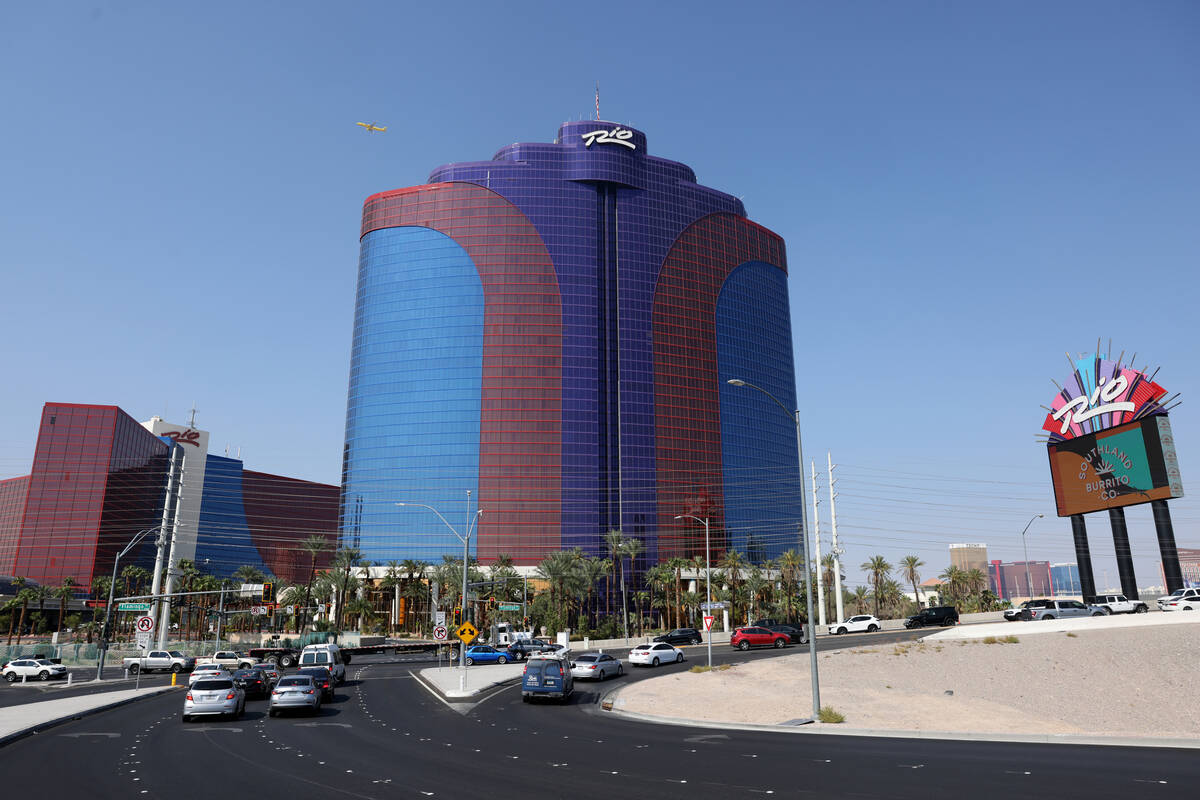This Las Vegas casino is changing its tip policy. Some dealers are unhappy
An off-Strip casino is proposing a new tip-out policy for table game dealers in an apparent effort to attract more highly skilled employees.
However, some dealers at Rio Las Vegas are skeptical the changes will benefit them, and they wonder why this specific policy is rarely used in the industry.
According to an internal memo shared with the Review-Journal, Rio is implementing a 50/50 toke split for all table game dealers. Under the new policy, dealers will keep 50 percent of the tips, or tokes, earned at their table. The other 50 percent will be pooled and split evenly among all dealers who worked within the given 24-hour period.
Prior to the change in tip-out procedure, Rio dealers pooled all tips within a 24-hour period, and the money was divvied up. Those tips were documented, taxed and included in the employee’s paycheck along with their hourly rate.
The new policy went into effect Friday.
The memo from Rio management said the 50/50 toke split is “better” because it “ensures everyone has a fair and reliable income, encourages teamwork, and helps us all provide a better, more consistent experience for our guests.”
“This approach strengthens our team and keeps us competitive in a changing market,” the memo reads.
The Review-Journal asked to speak with someone from Rio about the changes. In response, an outside public relations firm provided the following statement on behalf of the casino:
“At Rio, we believe in creating an environment where everyone is treated fairly, teamwork is rewarded, and the rewards of hard work are shared equitably. We decided to change our toke distribution policy to ensure greater fairness, transparency, and the continued success of our team members.”
Several Rio table game dealers said they do not understand how these changes will help them. The dealers who spoke to the Review-Journal were given anonymity because they feared their jobs could be in jeopardy for speaking out.
One Rio employee, who has been dealing in Las Vegas casinos since the early ’80s, said bluntly, “I’ve never heard of this, at least not anywhere I’ve ever worked.”
“They seem to feel that they’re going to get better dealers coming in if some people hear that they’re going to be able to keep their money across the table, but nobody’s going to show up for a 50/50 cut,” the veteran dealer said.
Another longtime dealer reported a “mixed” response among Rio dealers.
“Some (people) don’t know better but certain games make more than others. So, the prime games will go to whoever the scheduler assigns,” they said, adding that the system opens up the possibility for dealers to “kick back” money to the scheduler in exchange for better table assignments.
Rio dealers are not represented by a labor union, so some of the employees said they felt like the property’s management is taking advantage of desperate workers who won’t push back because they fear losing their jobs.
“(This) is open to corruption… (and) somebody will abuse their power,” another dealer told the Review-Journal.
Rio is operated by Dreamscape, a New York City-based firm that purchased the property for $516 million in 2019. Under an agreement with the Rio’s former owner/operator, Caesars Entertainment, Dreamscape did not assume full control of the property until October 2023.
Dreamscape is investing nearly $350 million into the property, which has included remodeling close to 1,500 hotel rooms, refreshing the 117,000-square-foot casino floor, and debuting several new dining concepts and a six-outlet food court that took the place of the buffet.
Contact David Danzis at ddanzis@reviewjournal.com or 702-383-0378. Follow @ac2vegas-danzis.bsky.social.


















